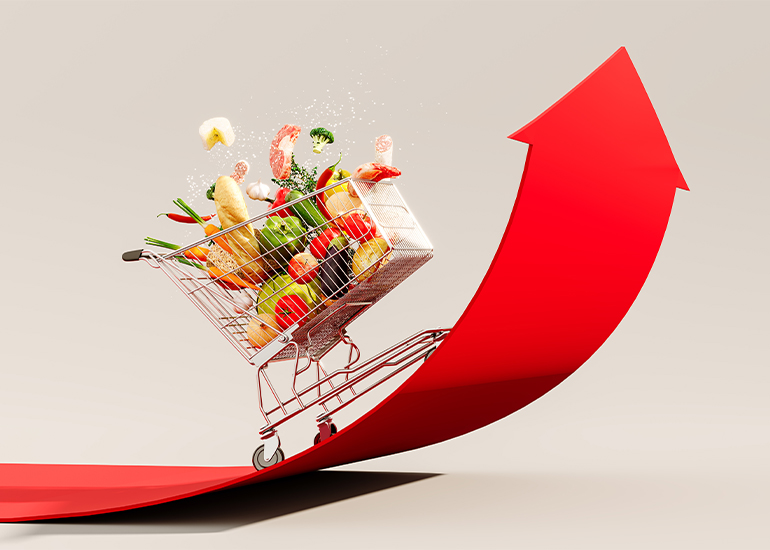Prof. Godfred A. Bokpin, an economics instructor at the University of Ghana Business School, has said that the high inflation rate for October is not as surprising as many Ghanaians have claimed.
He explained that this was because the conditions for higher inflation rates were obvious and were only waiting to explode at the end of the month. Prof. Bokpin warned that more difficult times lay ahead and expressed concern that things would not get better very soon.
The percentage of households in Ghana’s expenditure on food is between 42 – 44%. According to data from the Ghana Statistical Service, among all the components compared to non-food inflation, food inflation had the highest rate, with a 3% increment from the prior 37.2% rate. As a result of the increasing rate of food inflation, many households have been negatively impacted.
I can imagine the number of families that can no longer afford 3-square meals a day because the prices of rice, oil, beans, yams, and basic foodstuff are exorbitant. How some families are even surviving, I do not know.
The other components that have been hit by the high inflation rate include Housing, Water, Electricity, Gas and Other Fuels (69.6%), Furnishings, Household Equipment and Routine Household Maintenance (55.7%), Transportation (46.3%), and Personal Care, Social Protection, and Other Goods and Services (45.5%).
Ghana’s year-on-year inflation rate as measured by the CPI was 40.4% for the month of October, according to government statistician, Professor Samuel Kobina Annim. Food and non-food inflation also rose to hit 43.7% and 37.8% respectively with Eastern Region recording the highest inflation among the 16 regions with inflation at 51.1 percent.
In addition, he said that the Covid-19 outbreak and the Russia-Ukraine war had aggravated the situation and hugely impacted the ability of many households across the country to make purchases. To help lower the inflation rate for the next months, he cautioned that the heavy importation that comes with the Christmas celebrations must be reduced.
Also, in the case of month-on-month food inflation nine subclasses record rates higher than the national average. Milk and Other Dairy Products and Eggs recorded the highest, 7.8%.


I like this post, enjoyed this one appreciate it for posting.
Awsome article and right to the point. I don’t know if this is in fact the best place to ask but do you people have any ideea where to hire some professional writers? Thanks in advance 🙂
Good day I am so glad I found your website, I really found you by mistake, while I was looking on Bing for something else, Nonetheless I am here now and would just like to say thank you for a incredible post and a all round enjoyable blog (I also love the theme/design), I don’t have time to go through it all at the minute but I have book-marked it and also added your RSS feeds, so when I have time I will be back to read a lot more, Please do keep up the fantastic work.